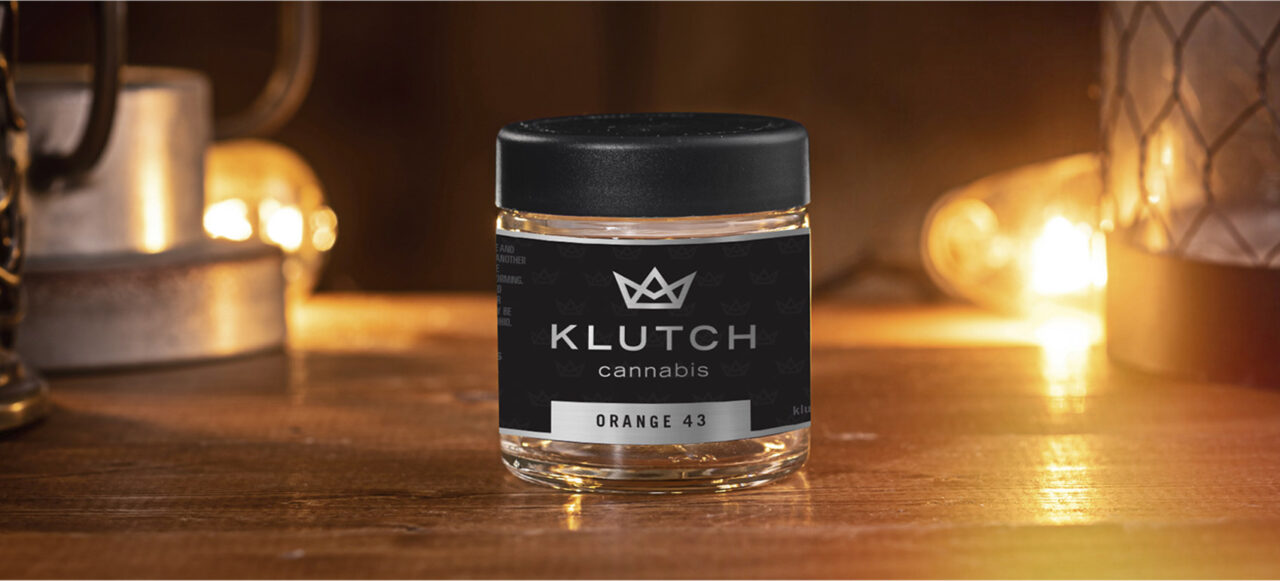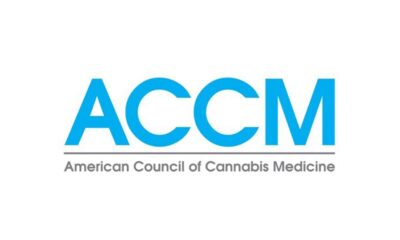Business
Klutch Cannabis wins dispensaries in downtown Cleveland, Northfield Village after state settlement
Published
1 year agoon

This story was republished with permission from Crain’s Cleveland Business and written by Jeremy Nobile.
Klutch Cannabis fought the law and won — more or less.
The vertically integrated cannabis company with headquarters, cultivation, and processing facilities in Akron said it has reached a settlement with the state of Ohio that resolves years of litigation and, as a result, enables the business to open two new marijuana dispensaries in Northeast Ohio.
“We would like to express our sincere gratitude to the leadership and staff of the Division of Cannabis Control, who have endeavored to amicably resolve these cases despite undertaking a mountain of work readying the state for its new adult-use program,” said Klutch founder and CEO Adam Thomarios in a statement. “We are thrilled to be able to finally put these cases behind us and are ready to get to work preparing these stores for our patients and future adult-use customers.”
One of these two shops, according to the company, will be in downtown Cleveland at 300 Prospect Ave. E.
The long-vacant storefront there was once home to Record Rendezvous, a legendary music shop that occupied the space between 1945 and 1987. The shop’s owner, Leo Mintz, is credited with helping coin the term “rock ‘n’ roll,” thereby playing a role in establishing Cleveland’s heritage as a rock ‘n’ roll city.
Klutch currently operates marijuana dispensaries in Lorain and Canton that have been operating under the brand name “The Citizen by Klutch.”

Its future Cleveland store, though, which is a stone’s throw from East 4th Street and Rocket Mortgage FieldHouse, will be the most high-profile shop in the Klutch footprint.
Thomarios describes it at Klutch’s future flagship store, noting its design will pay “homage to its unique musical heritage.”
“Our Cleveland location is located right in the heart of downtown Cleveland’s entertainment district and is a historical landmark with an amazing cultural connection to the city and region,” said Klutch vice president Pete Nischt. “It’s a shame that it’s been vacant for so long, but we are on a mission to restore it to its former glory. We want this next iteration of the building to honor its past while being the best representation of our brand, company, and vision thus far.”
Klutch said its other new store will be at 10650 Northfield Road in Northfield Village, which is across the street from the MGM Northfield Park racino and “uniquely positioned to serve Northern Summit County and surrounding communities.”
The settlement enabling these new dispensaries follows three lawsuits that Klutch brought against the Ohio Board of Pharmacy challenging the results of its processes for awarding dispensary licenses.
These suits were related to applications to operate retail shops at locations in Akron, Cleveland Heights, and Euclid.
The first lawsuit dates back to the state’s inaugural round of medical marijuana dispensary licensing, a process known as RFA I. (RFA stands for “request for applications.”)
Applications for RFA I opened in 2017, and permit winners were selected in that round via a scoring system that rated applications on a series of criteria.
Klutch challenged scoring discrepancies between it and other applicants as it appealed the results on the application for its proposed Akron shop.
Klutch’s other two suits stem from the state’s second dispensary application process or RFA II.
RFA II applications opened in 2021. However, the state switched its approval process from a scoring dynamic to a lottery system — in large part due to litigation that resulted from RFA I. Applications still had to meet particular criteria to be eligible, but winners were ultimately selected through a drawing conducted by the Ohio Lottery Commission.
“In one case, we challenged a rule that, as applied, prevented the award of a license. That rule has since been reinterpreted to match the controlling statute,” Nischt said. “In the other case, we challenged what we felt was the non-application of a requirement that resulted in another applicant winning a license at a site we applied on.”
Klutch’s suits were filed against the board of pharmacy as that agency was previously the primary regulator for dispensaries under the Ohio Medical Marijuana Control Program. All other business activity was regulated by the Ohio Department of Commerce.
At the beginning of 2024, the state removed the Board of Pharmacy as a cannabis regulator and flattened the regulatory dynamic from two agencies to one. The state’s primary marijuana industry regulator is now the Division of Cannabis Control, or DCC, which operates within the commerce department.
As far as how this settlement was achieved, Nischt said the transition to DCC “provided all involved with a good opportunity to take a step back and evaluate everything.”
“Despite how busy they were, the DCC made time to try to resolve these issues with us. Our settlement resolved all three cases and resulted in the award of two licenses,” Nischt said. “At the end of the day, we are satisfied with the outcome, appreciative of the time spent working through these issues with us, and are excited to show these new locations what we are made of.”
Crain’s has reached out to DCC officials for comments on the settlement with Klutch.
Klutch must complete build-outs for its new shops in Cleveland and Northfield Village ahead of regulators allowing them to serve the public.
Nischt said the expectation is that the Cleveland store will come online first but that the company expects both to be operational in the first quarter of 2025.
Meanwhile, in conjunction with the announcement about this settlement and its new dispensaries, Klutch said it will rebrand its retail operation from “The Citizen by Klutch” to simply “Klutch Cannabis.” The company said more details about this rebrand will come in the fall as official rules for the adult-use program are finalized.

Author: mscannabiz.com
MScannaBIZ for all you Mississippi Cannabis News and Information.
You may like
-


Millennials Are Spending Big on Luxury Travel
-


Ohio Lawmakers Advance Bill To Scale Back Voter-Approved Marijuana Law And Impose Hemp Regulations
-


Data Confirms Cannabis Is Safer Than Alcohol
-


American Council of Cannabis Medicine Unveils Major Industry Initiative to Expand Medical Cannabis Access
-


Scientists Develop New Class Of CBD Using A Common Kitchen Spice—Not Cannabis
-


Evidence About Burning Mouth Syndrome And Cannabinoids
Business
Nebraska medical cannabis regulations stall in legislative committee
Published
6 months agoon
April 18, 2025

A Nebraska legislative committee voted 5-3 against advancing a bill designed to implement and regulate the state’s medical cannabis program, leaving legislators and advocates searching for alternative paths forward, according to the Nebraska Examiner.
The General Affairs Committee rejected Legislative Bill 677, sponsored by State Sen. Ben Hansen of Blair, during a Thursday vote where committee members declined to offer amendments to the legislation, the publication reported.
“I don’t want to shut all the doors right now, but some doors are closing, and they’re closing fast, and so we have to act,” Hansen told reporters after the vote, according to the Examiner.
Nebraska voters approved medical cannabis in November 2024, with residents legally permitted to possess up to 5 ounces with a healthcare practitioner’s recommendation since mid-December. However, the regulatory commission created by the ballot initiative lacks effective power and funding to regulate the industry.
Hansen described his legislation as “a must” for 2025 to prevent a “Wild West” scenario in the state’s cannabis market. The bill would have expanded regulatory structure through the Nebraska Medical Cannabis Commission and extended deadlines for regulations and licensing to allow more time for implementation, the Examiner noted.
Committee disagreements centered on proposed restrictions. A committee amendment would have prohibited smoking cannabis and the sale of flower or bud products while limiting qualified healthcare practitioners to physicians, osteopathic physicians, physician assistants or nurse practitioners who had treated patients for at least six months.
The amendment also would have limited qualifying conditions to 15 specific ailments including cancer, epilepsy, HIV/AIDS, and chronic pain lasting longer than six months.
State Sen. Bob Andersen of Sarpy County opposed allowing vaping due to concerns about youth drug use, while committee chair Rick Holdcroft suggested selling cannabis flower would be “a gateway toward recreational marijuana,” a claim Hansen “heavily disputed,” according to the Examiner.
Hansen now faces a difficult path forward, requiring at least 25 votes to pull the bill from committee and then needing 33 senators to advance it across three rounds of debate, regardless of filibuster attempts.
Crista Eggers, executive director of Nebraskans for Medical Marijuana, remained optimistic despite the setback.
“This will not be the end,” Eggers said, according to the outlet. “Giving up has never been an option. Being silenced has never been an option. It’s not over. It’s not done.”
The legislative impasse is further complicated by ongoing litigation. Former state senator John Kuehn has filed two lawsuits challenging the voter-approved provisions, with one appeal pending before the Nebraska Supreme Court. The state’s Attorney General is also trying to do something about the hemp question, akin to other states across the country.

Author: mscannabiz.com
MScannaBIZ for all you Mississippi Cannabis News and Information.
Business
One of Las Vegas’ cannabis lounges closes its doors
Published
6 months agoon
April 18, 2025

Nevada’s cannabis lounge experiment faces some expected growing pains, with one of just two state-licensed venues closing its doors after barely a year in business, according to the Las Vegas Weekly.
“The regulatory framework, compliance costs and product limitations just don’t support a sustainable business model,” said Thrive Cannabis managing partner Mitch Britten, who plans to convert the space into an event venue until regulations loosen up.
The closure leaves Planet 13’s Dazed Consumption Lounge as the only operational state-regulated cannabis lounge in Nevada. Dazed manager Blake Anderson estimates the venue attracts around 250 customers daily, primarily tourists. One other establishment, Sky High Lounge, has operated since 2019 on sovereign Las Vegas Paiute Tribe land exempt from state regulations.
Even with Nevada regulators conditionally approving 21 more lounge licenses, potential owners are struggling to meet the $200,000 liquid assets requirement – particularly social equity applicants from communities hit hardest by prohibition.
Recreational marijuana has been legal statewide since 2017, but public consumption remains prohibited. That’s created an obvious disconnect for the millions of tourists who visit Las Vegas annually but have nowhere legal to use the products they purchase. The state recorded roughly $829 million in taxable sales during the 2024 fiscal year.
“It always comes down to money, and it’s difficult to get a space if you can’t afford to buy a building. On top of that, getting insurance and finding a landowner who’s willing to lease to a cannabis business is a challenge in and of itself,” said Christopher LaPorte, whose consulting firm Reset Las Vegas helped launch Smoke and Mirrors, told Las Vegas Weekly.
Many think the key to future success lies in legislative changes that would allow lounges to integrate with food service and entertainment – playing to Las Vegas’s strengths as a hospitality innovator. In the meantime, the industry will continue to adapt and push forward.
“Things take time,” LaPorte said. “There’s a culture that we have to continue to embrace and a lot of education that we still have to do. But at the end of the day, tourists need a place to smoke, and that’s what these places are.”

Author: mscannabiz.com
MScannaBIZ for all you Mississippi Cannabis News and Information.


Psyence Group Inc. (CSE: PSYG) told investors that it will be consolidating all of its issued and outstanding share capital on the basis of every 15 existing common shares into one new common share effective April 23, 2025 with a record date of April 23, 2025. As a result of the consolidation, the issued and outstanding shares will be reduced to approximately 9,387,695 on the effective date.
This is the second time a Psyence company has consolidated shares recently. In November, its Nasdaq-listed associate, Psyence Biomedical Ltd. (Nasdaq: PBM), implemented a 1-for-75 share consolidation as the psychedelics company worked to maintain its Nasdaq listing.
Psyence Group reported earnings in February when the company delivered a net loss of C$3 million and was reporting as a going concern. At the end of 2024, the company said it had not yet achieved profitable operations, has accumulated losses of C$48,982,320 since its inception.
Total assets at the end of 2024 were C$11,944,478 and comprised predominantly of: cash and cash equivalents of C$10,611,113, other receivables of C$159,808, investment in PsyLabs of C$1,071,981 and prepaids of C$68,243.
Still, the company is pushing ahead. Psyence told investors that it has historically secured financing through share issuances and convertible debentures, and it continues to explore funding opportunities to support its operations and strategic initiatives. “Based on these actions and
management’s expectations regarding future funding and operational developments, the company believes it will have sufficient resources to meet its obligations as they become due for at least the next twelve months,” it said in its last financial filing.
The company said it believes that the consolidation will position it with greater flexibility for the development of its business and the growth of the company.

Author: mscannabiz.com
MScannaBIZ for all you Mississippi Cannabis News and Information.

Millennials Are Spending Big on Luxury Travel

Ohio Lawmakers Advance Bill To Scale Back Voter-Approved Marijuana Law And Impose Hemp Regulations

Data Confirms Cannabis Is Safer Than Alcohol

American Council of Cannabis Medicine Unveils Major Industry Initiative to Expand Medical Cannabis Access

Scientists Develop New Class Of CBD Using A Common Kitchen Spice—Not Cannabis

Evidence About Burning Mouth Syndrome And Cannabinoids

Raw Garden Acquires ‘California Love’ to Grow Clean Cannabis Movement

Rhode Island Marijuana Officials Approve Timeline For Awarding New Dispensary Licenses

‘Rent-a-License’ Scheme Highlights New York Cannabis’s Track-and-Trace Problem

Alcohol Industry Steps Up Lobbying On Hemp Drinks As Congress Debates THC Ban

Cannabis Mogul Appointed Ambassador To Middle East Country

Pennsylvania Senators Approve Bipartisan Cannabis Bill To Create New Regulatory Body

Ahead Of New Jersey Governor Election, GOP Candidate’s Comments On Marijuana As A ‘Gateway Drug’ Resurface

Urgent Action Needed To End US Marijuana Arrests

Supreme Court takes up cannabis & gun rights case (Newsletter: October 21, 2025)

What Winning Looks Like: The New Jersey Dispensaries Playing a Different Game

Trump Taps Marijuana Industry ‘Visionary’ As Special Envoy To Iraq

Delaware Scam Claiming to Represent State-Licensed Dispensary Offering Illegal Cannabis Deliveries – Ganjapreneur
New York Should Legalize Psilocybin Therapy, Former Narcotics Prosecutor Says (Op-Ed)

Do Public Votes About Cannabis Matter Currently

Ohio Lawmakers Will Take Up Bill To Revise Voter-Approved Marijuana Law And Add Hemp Market Restrictions This Week

The Best Microdosing Strains For A Rough Week
Rubicon Organics Announces Health Canada Cultivation License For Cascadia Facility

Building Community, One Bagel at a Time

Alert: Department of Cannabis Control updates data dashboards with full data for 2023

Connecticut Appoints The US’s First Cannabis Ombudsperson – Yes there is a pun in there and I’m Sure Erin Kirk Is Going To Hear It More Than Once!

5 best CBD creams of 2024 by Leafly

Recreational cannabis on ballot for third time in South Dakota

EU initiative begins bid to open access to psychedelic therapies
New Study Analyzes the Effects of THCV, CBD on Weight Loss

Free delta-9 gummies from Bay Smokes

5 best autoflower seed banks of 2024 by Leafly

Discover New York’s dankest cannabis brands [September 2024]

Press Release: CANNRA Calls for Farm Bill to Clarify Existing State Authority to Regulate Hemp Products

May 2024 Leafly HighLight: Pink Runtz strain

5 best THC drinks of 2024 by Leafly

Local medical cannabis dispensary reacts to MSDH pulling Rapid Analytics License – WLBT

6 best CBD gummies of 2024 by Leafly

Curaleaf Start Process Of Getting Their Claws Into The UK’s National Health System – With Former MP (Resigned Today 30/5/24) As The Front Man

Horn Lake denies cannabis dispensary request to allow sale of drug paraphernalia and Sunday sales | News

5 best delta-9 THC gummies of 2024 by Leafly

Mississippi city official pleads guilty to selling fake CBD products

The Daily Hit: October 2, 2024

Nevada CCB to Accept Applications for Cannabis Establishments in White Pine County – “Only one cultivation and one production license will be awarded in White Pine County”

5 best THCA flower of 2024 by Leafly

Weekly Update: Monday, May 13, 2024 including, New Guide for Renewals & May Board meeting application deadline

6 best hemp pre-rolls of 2024 by Leafly

PRESS RELEASE : Justice Department Submits Proposed Regulation to Reschedule Marijuana
Trending
-

 California Cannabis Updates1 year ago
California Cannabis Updates1 year agoAlert: Department of Cannabis Control updates data dashboards with full data for 2023
-

 Breaking News1 year ago
Breaking News1 year agoConnecticut Appoints The US’s First Cannabis Ombudsperson – Yes there is a pun in there and I’m Sure Erin Kirk Is Going To Hear It More Than Once!
-

 best list1 year ago
best list1 year ago5 best CBD creams of 2024 by Leafly
-

 Business1 year ago
Business1 year agoRecreational cannabis on ballot for third time in South Dakota
-

 Business1 year ago
Business1 year agoEU initiative begins bid to open access to psychedelic therapies
-

 cbd1 year ago
cbd1 year agoNew Study Analyzes the Effects of THCV, CBD on Weight Loss
-

 Bay Smokes1 year ago
Bay Smokes1 year agoFree delta-9 gummies from Bay Smokes
-

 autoflower seeds1 year ago
autoflower seeds1 year ago5 best autoflower seed banks of 2024 by Leafly
